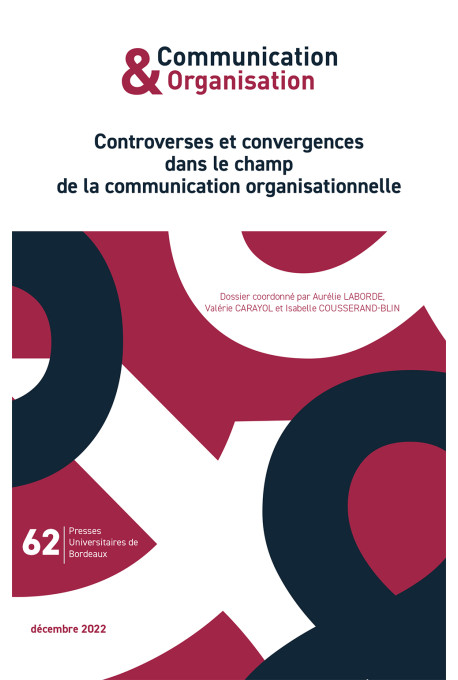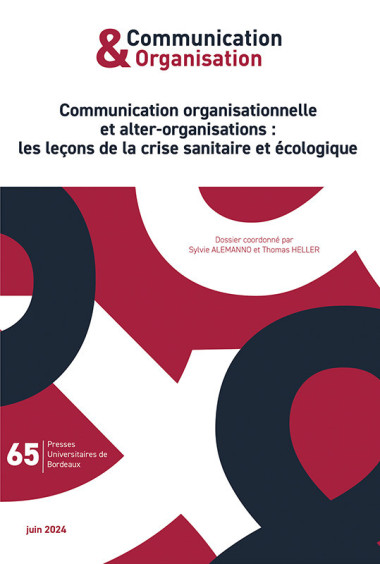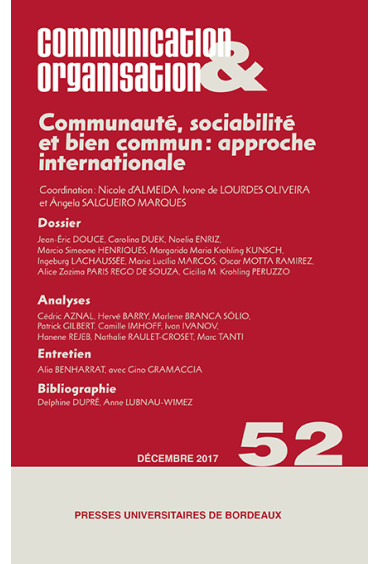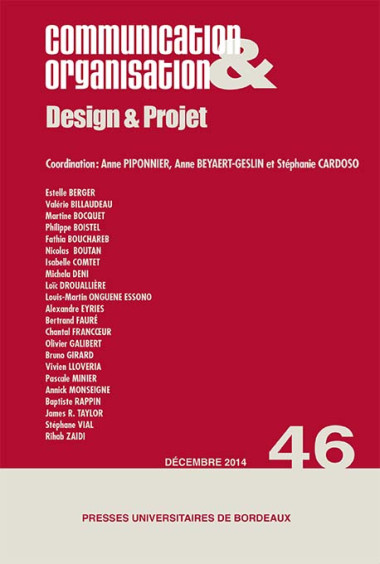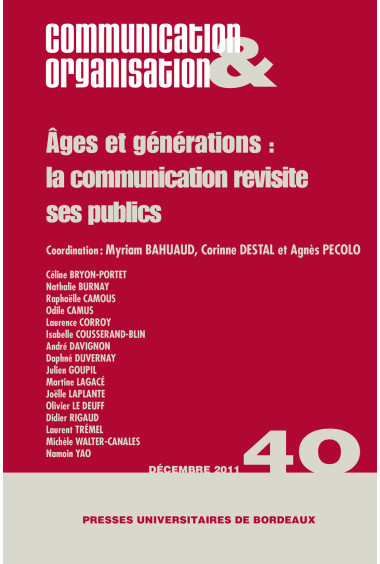Revues - Communication & Organisation
Controverses et convergences dans le champ de la communication organisationnelle – Communication & Organisation 62
ISBN : 979-10-300-0861-6
Nombre de pages : 218
Format : 16 x 24
Date de sortie : 2023/03
La Revue Communication & organisation propose pour ses trente ans de revivifier la longue tradition académique de la disputatio et de réhabiliter les apports heuristiques de la controverse dans le champ de la communication organisationnelle en leur donnant un espace de publicisation.
La Revue Communication & organisation propose pour ses trente ans de revivifier la longue tradition académique de la disputatio et de réhabiliter les apports heuristiques de la controverse dans le champ de la communication organisationnelle en leur donnant un espace de publicisation. Les auteurs de ce numéro anniversaire ont relevé ce défi chacun à leur manière, à travers des analyses de la littérature et de l’histoire du champ, et notamment de notre revue et du groupe de recherche Org&co, mais également autour de thématiques particulières comme l’incommunication, la désorganisation, ou encore la place des affects dans les recherches en communication organisationnelle.
